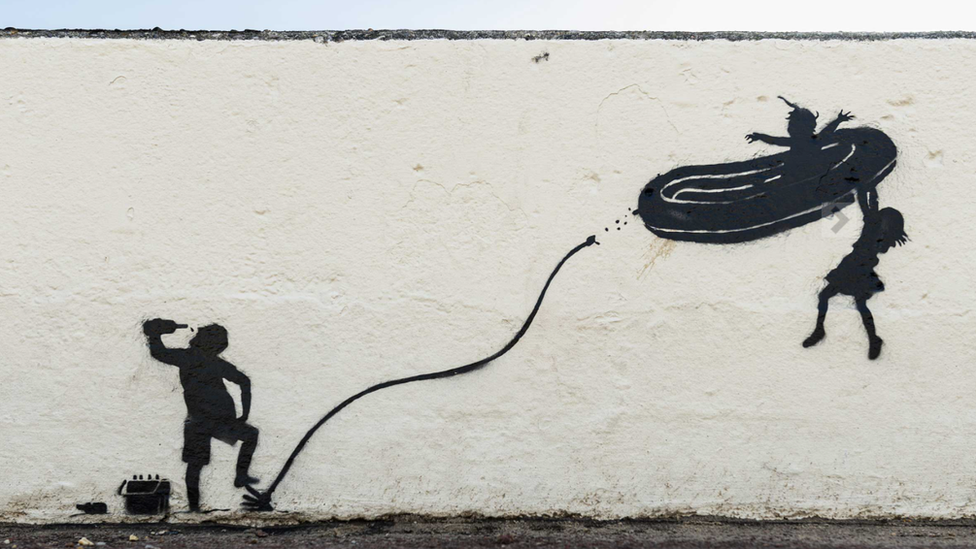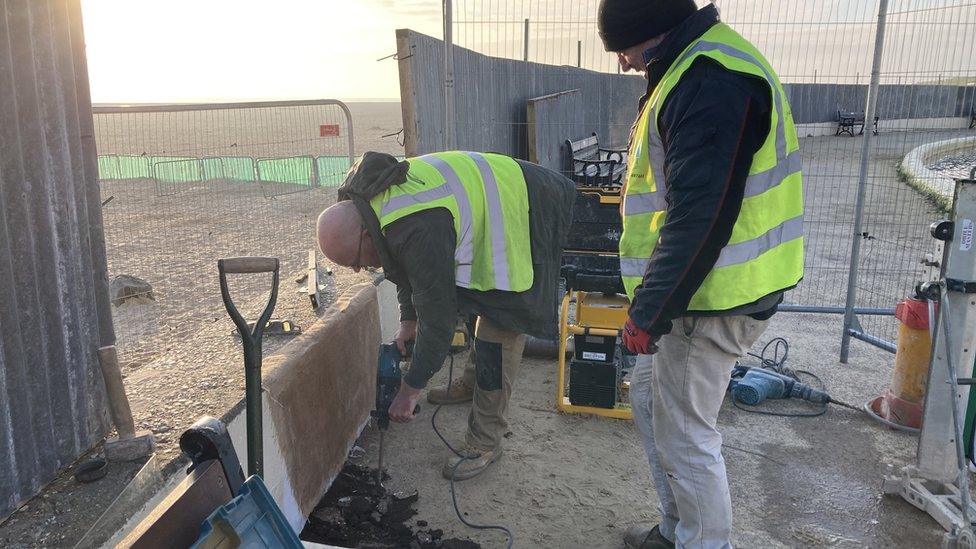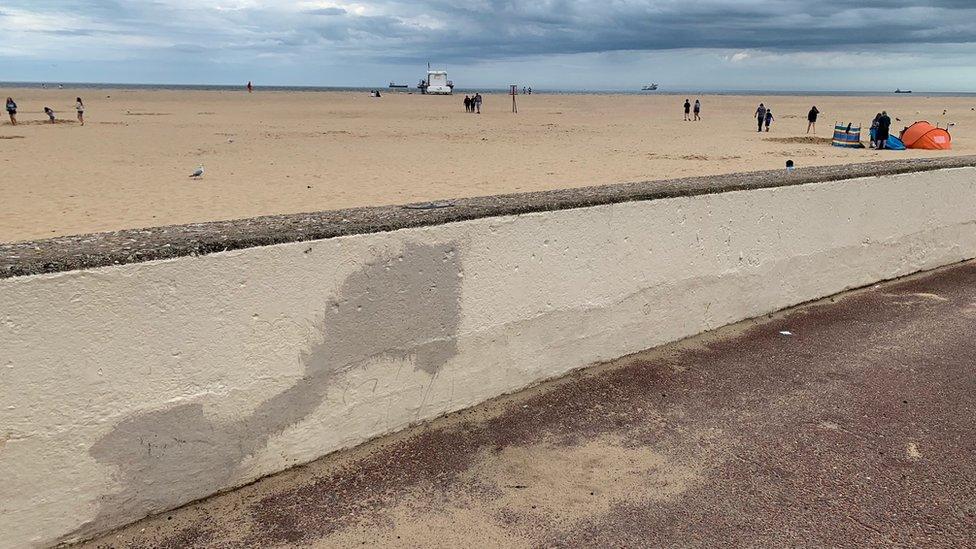Gorleston Banksy: Dinghy artwork removed from wall
- Published

Banksy listed the mural on his website as part of his Great British Spraycation project
A Banksy mural which was covered up amid "sensitivity" concerns over a child's death has been removed and will go on display at a museum.
Ava-May Littleboy, 3, died when the inflatable trampoline she was on burst on Gorleston beach, Norfolk, in 2018.
The street artist's piece, featuring children on an inflatable dinghy, appeared on the wall in August, close to where she died.
It will go on temporary display at Great Yarmouth's Time and Tide Museum.
The mural was part of the reclusive artist's Great British Spraycation project, which saw a number of artworks appear in Suffolk and Norfolk.
The dinghy image was covered with paint by the local council, to avoid offence.

Restoration experts removed a Banksy mural from the boating lake wall at Gorleston, Norfolk
Work to remove the mural from its current Gorleston Yacht Pond location is being carried out by Hirst Conservation.
Tim Pretty, from the company, said the delicate process of removing the artwork would take about two days.
"We've worked on many projects extracting artworks from tile murals at Wembley Stadium to moving large statues, so you've just got to take your time, be careful and just keep an eye on things that could go wrong, but hopefully don't," he said.
The artwork was covered up with masonry paint soon after it appeared to avoid offending people affected by Ava-May's death.
Mr Pretty said: "The masonry paint that's over it is protecting the Banksy. So we want that paint to stay in place until we can remove it at our leisure.
"They're all reversible adhesives and solvents so they can be chemically removed [without harming the artwork]," he added.
The piece will eventually go on display in the reception area of the Time and Tide Museum in Great Yarmouth.
Aside from the removal project, the council had already spent in the region of £10,000 on protective screenings for the Banksy artworks in the borough.
Great Yarmouth Borough Council leader, Conservative Carl Smith, said it was good value for money.
"The cost is irrelevant really to what it brings in to the town," he said.
"We won't be selling any of them. They're a tourist attraction. We've had a phenomenal amount of people come and see them."

The council said it "fully appreciated" Ava-May's death would not have been known to the artist

Find BBC News: East of England on Facebook, external, Instagram, external and Twitter, external. If you have a story suggestion please email eastofenglandnews@bbc.co.uk, external
Related topics
- Published22 January 2022

- Published16 August 2021

- Published15 August 2021
